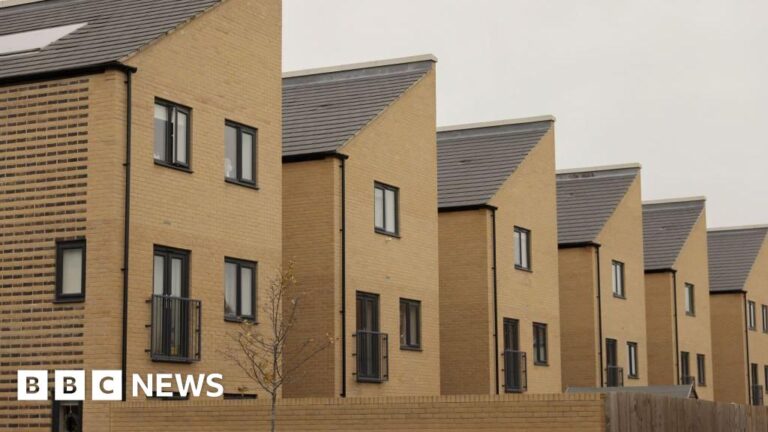Getty Images
UK house prices ended 2024 up around 4.7% compared to the start of the year, according to Nationwide.
House prices and property market activity have remained “remarkably resilient” despite affordability issues facing buyers, the lender said.
The average house in the UK cost £269,426 at the end of December, figures show.
Despite the latest increase, the average cost remains lower than the peak observed in summer 2022.
Nationwide, the UK’s largest building society, said prices of terraced houses had risen the fastest over the year.
Northern Ireland has seen the fastest price growth, according to its mortgage data, with values also rising faster in the north of England than the south.
Changes in 2025
The lack of certainty over interest rates and mortgage rates, as well as the upheaval caused by stamp duty changes, could make 2025 difficult to navigate for buyers and sellers.
Housing experts predict the market will see the number of sales increase over the coming months, ahead of stamp duty changes due in April.
Home buyers will start paying stamp duty on properties over £125,000, instead of over £250,000 currently.
First-time buyers currently pay no stamp duty on homes up to £425,000, but this will drop to £300,000 in April.
Many observers also expect the Bank of England to gradually cut interest rates throughout the year, perhaps from February, which would give confidence to lenders and encourage them to reduce the cost of new fixed rate mortgage transactions.
However, Bank of England Governor Andrew Bailey recently said that “the world is too uncertain” to be able to accurately predict when and by how much interest rates will fall.
Lenders predicted that falling mortgage rates and rising wages should improve housing affordability over the course of the year.
UK Finance, the lenders’ trade body, has forecast a 10% rise in home purchase mortgages in 2025, although some analysts have already questioned the forecast, calling it optimistic for lenders.
Looking ahead, many people are expected to once again struggle to afford to move or buy a new home in 2026.
Eight out of ten mortgage customers benefit from fixed rate contracts. The interest rate on this type of mortgage does not change until the transaction expires, usually after two or five years, and a new mortgage is chosen to replace it.
Even if mortgage rates fall this year, rates will still be higher than what many homeowners are paying on the current fixed contract.
The Bank of England estimates that around 4.4 million mortgage holders are expected to see their payments increase by 2027.
He said a typical homeowner who is not on a fixed rate for the next two years would see their monthly mortgage repayments increase by around £146.
Nationwide’s house price data is based on its own mortgages, which does not include buyers purchasing homes outright or lease agreements. Cash buyers account for about a third of home sales.
Rival lender Halifax will release its final data for 2024 in the coming days.

